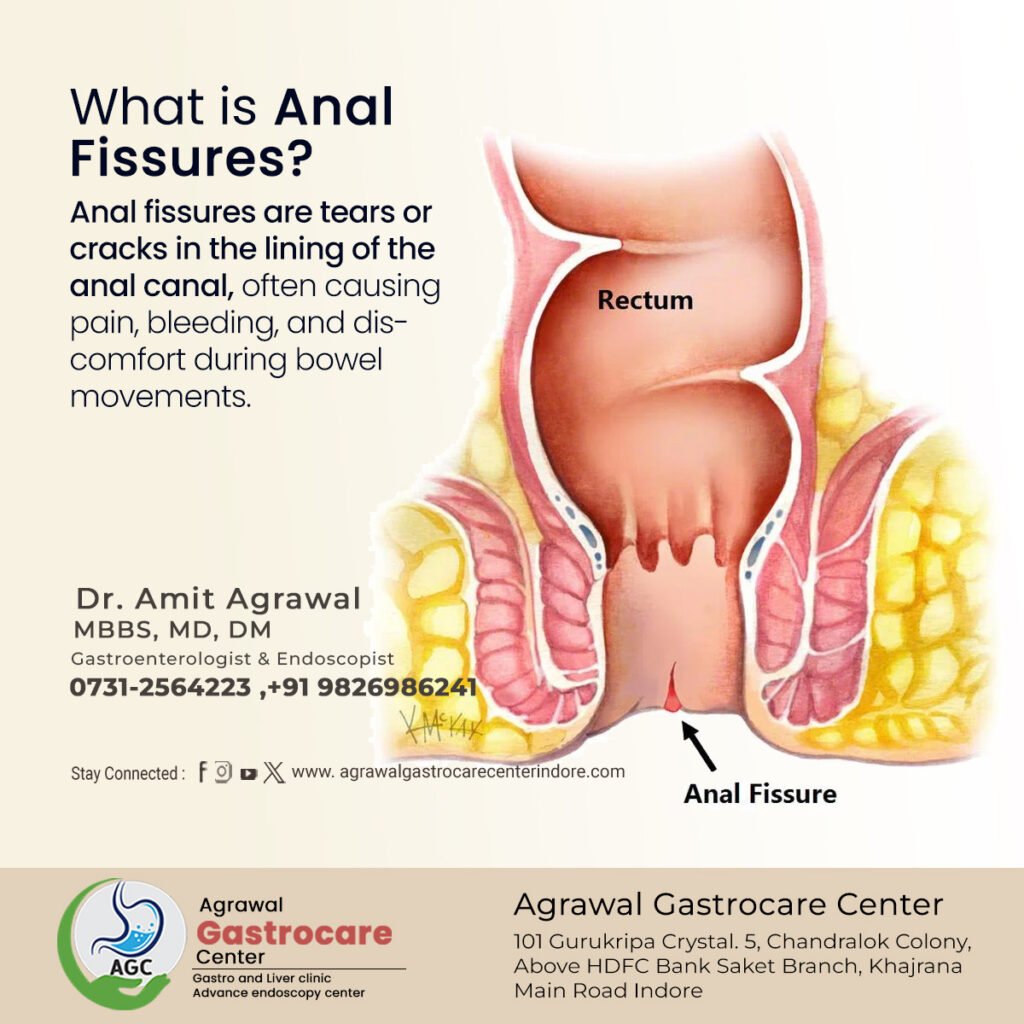What is Anal Fissures?, Symptoms, Causes, Treatment
What is Anal Fissures?
Anal fissures are small tears or cuts in the skin around the anus. They can happen when you pass hard or large stools, strain during bowel movements, or have diarrhea. These tears can cause pain, itching, and bleeding during or after going to the bathroom.
Anal fissures can make it uncomfortable to sit, walk, or even move around. It’s essential to seek medical advice if you experience persistent pain or bleeding from the anus, as it could be a sign of a more severe condition requiring treatment.

Symptoms of Anal Fissures
The symptoms of anal fissures are:
- Pain and discomfort around the anus.
- You may experience sharp or burning pain during or after bowel movements. This pain can last for hours after using the bathroom.
- You might also notice bright red blood on the toilet paper or in the toilet bowl after going to the bathroom.
- Some people may have itching or irritation around the anus, and in severe cases, you might even see a small tear or cut in the skin.
These symptoms can make it hard to sit comfortably or move around, and they can affect your daily activities. If you notice any of these symptoms, it’s important to talk to your doctor for proper diagnosis and treatment. They can help relieve your discomfort and prevent the fissure from getting worse.
Causes of Anal Fissures
Anal fissures can occur due to several reasons, mainly related to bowel movements and the delicate skin around the anus.
- One common cause is passing hard or large stools, which can stretch and tear the skin.
- Diarrhea or frequent bowel movements can irritate the skin and make it more prone to tearing.
- Other factors that can contribute to anal fissures include anal trauma, such as from anal intercourse, inflammatory bowel diseases like Crohn’s disease, and conditions that affect blood flow to the anus.
Treatment of Anal Fissures
Self-care includes adopting a high-fiber diet to soften stools and prevent constipation, drinking plenty of water, and practicing good bathroom habits to avoid straining during bowel movements.
Some ointments can help relieve pain and itching. Your doctor may prescribe medications to relax the anal muscles or promote healing. It’s essential to follow your doctor’s recommendations and maintain good bowel habits to prevent future fissures.
Dr. Amit Agarwal
Director & Gastroenterologist Consultant
Agarwal Gastrocare Center Indore



